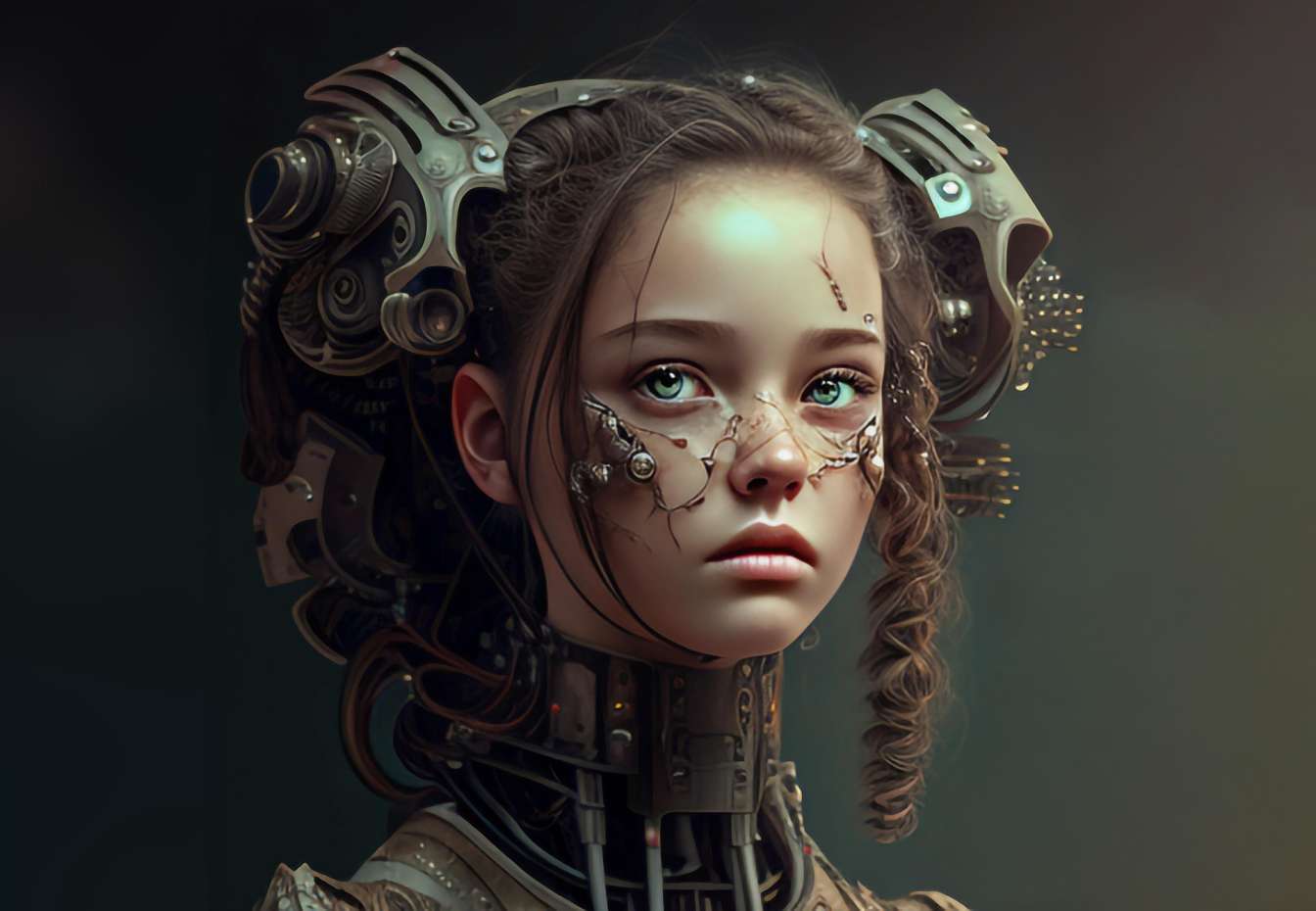How AI is Revolutionizing Daily Life: Real-World Applications and Future Trends


The Integration of AI in Daily Life: Transforming the Present and Shaping the Future
Artificial Intelligence (AI) is no longer a futuristic concept confined to science fiction. It has seamlessly integrated into our daily lives, revolutionizing the way we communicate, work, shop, travel, and even take care of our health. AI-driven innovations are enhancing convenience, efficiency, and personalization across various industries, reshaping the world as we know it.
From smart assistants and self-driving cars to AI-powered healthcare and education, AI has become an indispensable part of modern society. However, while AI offers numerous benefits, it also presents challenges related to privacy, security, ethics, and job displacement. In this comprehensive exploration, we will examine how AI is transforming different aspects of daily life, its advantages and risks, and what the future holds for this groundbreaking technology.
1. AI in Personal Assistants and Smart Homes
One of the most noticeable ways AI has integrated into our lives is through virtual assistants and smart home devices. AI-powered assistants like Siri, Google Assistant, and Alexa have become household staples, helping users with everyday tasks such as setting reminders, playing music, answering questions, and controlling smart devices.
How AI Enhances Smart Homes:
- Voice-Activated Controls: AI assistants allow users to control smart home devices using voice commands. Lights, thermostats, and security cameras can be managed remotely.
- Energy Optimization: AI-enabled thermostats like Nest learn user habits and adjust temperatures to optimize energy usage, reducing electricity bills.
- Enhanced Security: AI-powered security systems use facial recognition, motion sensors, and real-time alerts to detect unusual activities and prevent break-ins.
- Smart Appliances: AI-driven refrigerators suggest recipes based on available ingredients, while robotic vacuum cleaners optimize cleaning schedules based on home layouts.
Smart homes are becoming more sophisticated, offering greater convenience and energy efficiency, ultimately improving the quality of life for users.
2. AI in Healthcare: Revolutionizing Medicine
The healthcare industry has been significantly transformed by AI, leading to improved diagnostics, faster drug discovery, and better patient care. AI applications in healthcare range from wearable health monitors to robotic-assisted surgeries.
AI in Medical Diagnostics:
- AI-powered Imaging: AI algorithms analyze medical images, such as X-rays and MRIs, with high accuracy, detecting conditions like tumors, fractures, and neurological disorders.
- Disease Prediction: AI models assess patient data to predict the likelihood of diseases such as diabetes, cancer, and heart disease, allowing for early intervention.
AI in Patient Care:
- Virtual Health Assistants: Chatbots like Ada and Babylon Health provide symptom analysis, suggest treatment options, and remind patients to take medication.
- Wearable Health Devices: Smartwatches and fitness trackers with AI capabilities monitor heart rate, oxygen levels, and sleep patterns, alerting users and doctors to potential health issues.
- Robotic Surgery: AI-assisted robotic systems, like the Da Vinci Surgical System, enhance precision in complex surgeries, reducing risks and recovery times.
AI is making healthcare more proactive, personalized, and accessible, helping save lives and improve patient outcomes.
3. AI in Education: Transforming Learning
The education sector is undergoing a significant transformation with the integration of AI, making learning more accessible, efficient, and personalized. AI-driven platforms are revolutionizing the way students acquire knowledge.
AI-Powered Learning Platforms:
- Personalized Learning: AI tailors educational content to individual learning styles, strengths, and weaknesses. Platforms like Khan Academy and Duolingo adjust difficulty levels based on student performance.
- AI Tutors: Virtual tutors provide real-time assistance, helping students understand complex subjects outside of traditional classroom settings.
- Automated Grading: AI speeds up the grading process for assignments and exams, allowing teachers to focus on interactive teaching methods.
-Language Translation: AI tools like Google Translate help students learn foreign languages and facilitate communication between speakers of different languages.
AI in education enhances engagement and ensures that learning is more adaptive and inclusive, benefiting students of all backgrounds and abilities.
4. AI in the Workplace and Business
AI is reshaping workplaces by automating repetitive tasks, improving efficiency, and assisting in decision-making processes. Businesses across industries are leveraging AI to enhance productivity and customer experiences.
AI in Business Operations:
- Chatbots and Virtual Assistants: AI-powered chatbots handle customer inquiries, process orders, and provide 24/7 support.
- Data Analytics: AI analyzes vast amounts of business data to identify trends, optimize marketing strategies, and improve customer retention.
- Fraud Detection: Banks and financial institutions use AI algorithms to detect fraudulent transactions and protect customers from cyber threats.
- AI in Recruitment: AI-driven software scans resumes, shortlists candidates, and even conducts initial interview rounds, streamlining the hiring process.
AI is increasing workplace efficiency, reducing costs, and enabling businesses to make data-driven decisions that enhance growth.
5. AI in Entertainment and Media
AI is playing a crucial role in entertainment, revolutionizing content creation, recommendation systems, and media consumption.
AI in Content Recommendation:
- Streaming Services: Platforms like Netflix, YouTube, and Spotify use AI to analyze user preferences and recommend personalized content.
- AI-Generated Content: AI tools create music, art, and even realistic deepfake videos. OpenAI’s DALL-E generates artwork, while AI-powered music composition tools create original soundtracks.
- Video Editing and CGI: AI enhances film production by automating editing, improving CGI effects, and even digitally resurrecting actors for movie roles.
The entertainment industry is evolving rapidly with AI, offering hyper-personalized experiences and creative possibilities.
6. AI in Shopping and Retail
Online and offline shopping experiences are being transformed by AI, making them more interactive, personalized, and efficient.
AI in E-Commerce and Retail:
- Product Recommendations: AI suggests products based on browsing history and purchase behavior, improving customer satisfaction.
- Virtual Try-Ons: Augmented reality (AR) and AI enable customers to see how clothes, glasses, or makeup will look on them before purchasing.
- Inventory Management: AI predicts demand trends and optimizes supply chains, reducing waste and improving stock availability.
Retail businesses are leveraging AI to enhance customer engagement and streamline operations, leading to a more convenient shopping experience.
7. AI in Transportation and Autonomous Vehicles
AI is transforming transportation by making it safer, more efficient, and increasingly autonomous.
AI in Navigation and Public Transport:
- Smart Traffic Management: AI-powered systems analyze traffic patterns to reduce congestion and suggest optimal routes.
- Autonomous Vehicles: Companies like Tesla and Waymo are developing self-driving cars that use AI to navigate roads safely.
- AI in Ride-Sharing: Uber and Lyft use AI to match drivers with passengers, optimize routes, and adjust pricing dynamically.
AI is paving the way for a future where transportation is autonomous, efficient, and less reliant on human intervention.
8. AI in Social Media and Digital Communication
Social media platforms rely on AI to curate content, detect fake news, and enhance user engagement.
AI’s Role in Social Media:
- Content Moderation: AI detects and removes harmful content, including hate speech and misinformation.
- Chatbots and Influencer Marketing: AI-powered chatbots manage social media interactions, while AI-driven analytics help brands collaborate with influencers.
- Personalized Feeds: AI analyzes user behavior to tailor social media feeds, showing relevant posts and advertisements.
Social media platforms use AI to improve user experience, combat misinformation, and enhance digital interactions.
Challenges and Ethical Concerns of AI Integration
While AI brings numerous benefits, it also presents challenges and ethical dilemmas:
-Privacy Issues: AI collects vast amounts of data, raising concerns about user privacy and data security.
Bias in AI Algorithms: AI models can inherit biases from training data, leading to unfair outcomes in hiring, law enforcement, and financial decisions.
Job Displacement: Automation powered by AI threatens traditional jobs, necessitating workforce adaptation and reskilling.
Addressing these challenges requires responsible AI development, transparency, and regulatory frameworks to ensure fair and ethical AI use.
Conclusion: The Future of AI in Daily Life
AI is deeply integrated into our daily lives, improving convenience, efficiency, and decision-making across multiple domains. As technology advances, AI will continue to evolve, offering new possibilities and reshaping industries.
The key to a successful AI-driven future lies in ethical AI development, responsible governance, and continuous innovation. While AI enhances daily life, society must balance technological progress with human values to ensure that AI remains a tool for positive transformation.
